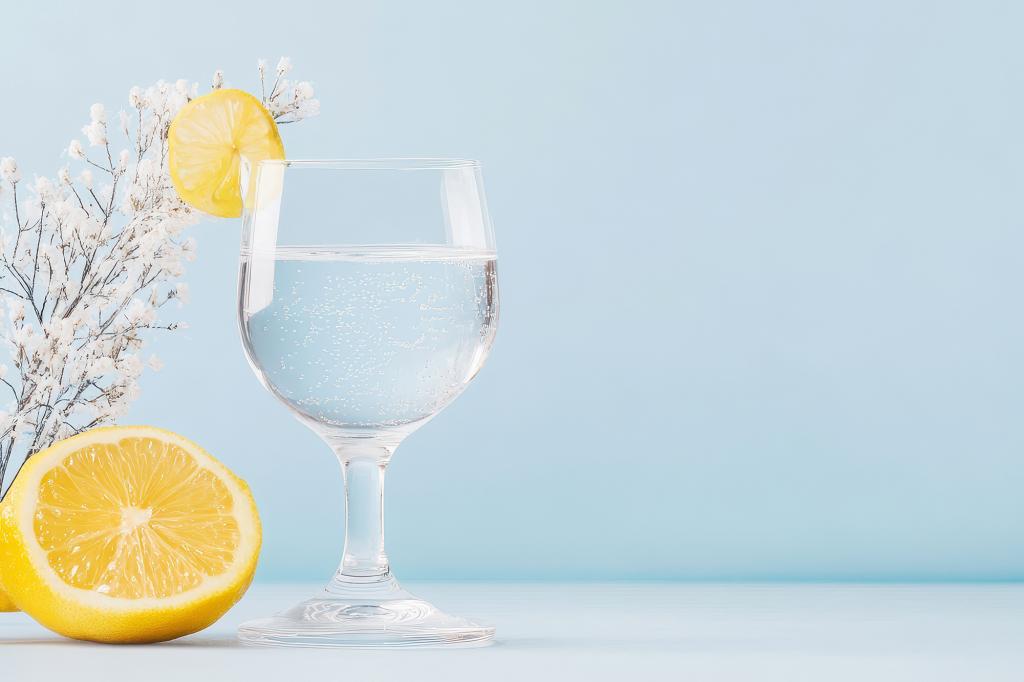The Transformative Power of Temporary Abstinence: A Deeper Dive into the Benefits of Reducing Alcohol Intake
The concept of "Dry January," a month-long abstention from alcohol, has gained significant traction in recent years, promoting a period of reflection and rejuvenation for both body and mind. While the calendar may have flipped past January, the benefits of reducing or eliminating alcohol intake extend far beyond a single month. Whether you’re aiming for a full month, a few weeks, or even just a temporary reprieve, temporarily abstaining from alcohol can lead to substantial improvements in both physical and mental well-being. This journey towards improved health can begin at any time and provides an opportunity for self-discovery and a fresh start. The positive ripple effects of reduced alcohol consumption are significant and can impact various aspects of your life.
One of the most compelling reasons to reduce alcohol intake lies in its impact on long-term health. A substantial body of research has established a strong link between alcohol consumption and an increased risk of various cancers, including breast, colorectal, esophageal, laryngeal, liver, mouth, and throat. By reducing or eliminating alcohol, you directly contribute to mitigating these risks, taking a proactive step toward safeguarding your future health. Beyond cancer prevention, abstaining from alcohol also benefits cardiovascular health. Alcohol can cause blood vessel dilation and fluid retention, both of which can contribute to elevated blood pressure. Reducing alcohol intake helps to stabilize blood pressure, reducing the strain on the cardiovascular system and lessening the risk of long-term complications.
The impact of alcohol on weight management and metabolic health is another crucial aspect to consider. Alcoholic beverages are often laden with "empty calories," providing minimal nutritional value while contributing significantly to daily caloric intake. Reducing alcohol consumption can facilitate weight loss by eliminating these excess calories and promoting a more balanced dietary approach. Furthermore, alcohol consumption is particularly detrimental to liver health, often contributing to the accumulation of belly fat and the development of fatty liver disease. Abstaining from alcohol allows the liver to recover and regenerate, improving its overall function and reducing the risk of serious liver-related illnesses. The digestive system also benefits significantly from reduced alcohol intake. Alcohol can irritate the digestive tract, leading to a range of uncomfortable symptoms such as acid reflux, bloating, constipation, and diarrhea. By giving your digestive system a break from alcohol, you allow it to heal and function more efficiently, promoting regularity and overall digestive comfort.
The impact of alcohol extends beyond physical health and significantly influences mental well-being. While a small amount of alcohol might initially induce drowsiness, it disrupts the deeper, more restorative stages of sleep, leading to poorer sleep quality and daytime fatigue. Reducing alcohol intake can dramatically improve sleep quality, leading to more restful nights and increased energy levels throughout the day. Improved sleep also strengthens the immune system, making you more resilient to illness and enhancing your overall health and vitality. The mental health benefits extend beyond improved sleep. Alcohol is a depressant that can exacerbate feelings of anxiety and low mood. Additionally, it contributes to blood sugar fluctuations, which can further destabilize mood and energy levels. By reducing alcohol consumption, you can stabilize your mood, experience greater emotional equilibrium, and enjoy a more positive outlook on life.
Reduced alcohol consumption also facilitates better nutrient absorption. Alcohol can interfere with the absorption of essential nutrients, including B vitamins, selenium, folic acid, and zinc. These nutrients play vital roles in various bodily functions, from energy production to immune function and cell growth. By reducing alcohol intake, you improve your body’s ability to absorb these crucial nutrients, optimizing overall health and well-being. Furthermore, maintaining a healthy hormone balance is essential for various bodily functions, including sexual health. Alcohol can disrupt hormone balance, potentially impacting libido and sexual function. Reducing alcohol intake helps to restore hormonal equilibrium, potentially leading to improved sexual health and satisfaction. The benefits even extend to skin health. Alcohol can contribute to skin problems such as acne, rosacea, and eczema by causing redness and irritation. Reducing alcohol intake can lead to clearer, healthier skin.
Navigating social situations while reducing alcohol intake requires planning and a strong support system. Anticipate potential challenges and develop strategies to manage situations where you might feel pressured to drink. Explore alternative beverages like mocktails or zero-alcohol options, which are increasingly available in social settings. Remember that socializing doesn’t have to revolve around alcohol. Focus on engaging in activities and conversations that don’t involve drinking, fostering genuine connections and enjoying social interactions without the need for alcohol. Building a support system is crucial. Find a friend, family member, or colleague with similar goals who can provide encouragement and support throughout your journey. Sharing your experiences and challenges with someone who understands can make the process more manageable and enjoyable. Track your progress and celebrate small victories along the way. Acknowledge and reward yourself for your commitment, reinforcing positive behaviors and staying motivated.
It’s important to remember that setbacks are a normal part of any behavioral change. If you slip up and have a drink, don’t be discouraged. View it as a learning opportunity and recommit to your goals. You might experience increased sensitivity to alcohol after a period of abstinence, leading to stronger effects from a smaller amount. Be mindful of this and adjust your intake accordingly. Focus on the positive changes you’ve experienced – improved sleep, increased energy, and enhanced overall well-being – to stay motivated and continue on your path towards reduced alcohol consumption.
If you have a history of heavy drinking, it’s essential to be aware of potential withdrawal symptoms, which can range from mild to severe. Symptoms such as seizures, uncontrollable shaking, or nightmares warrant immediate medical attention. Don’t hesitate to seek professional help if you’re struggling to reduce your alcohol intake or manage withdrawal symptoms. There are numerous resources and support systems available to guide you through this process and provide the assistance you need to achieve your goals. Reducing alcohol intake is a personal journey with significant potential to enhance both physical and mental well-being. Embrace the process, celebrate your progress, and don’t be afraid to seek support when needed.















